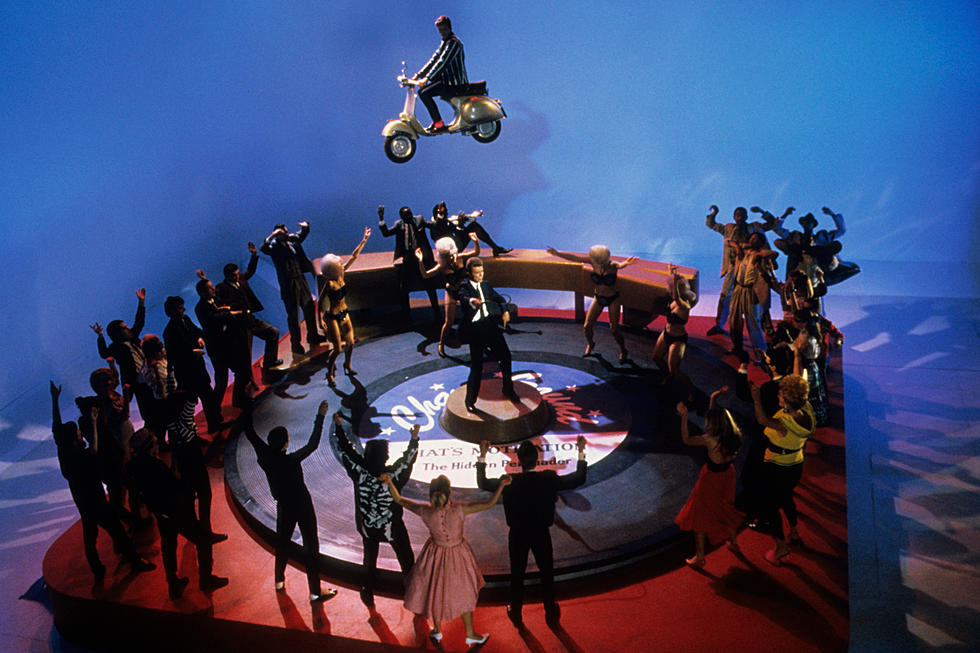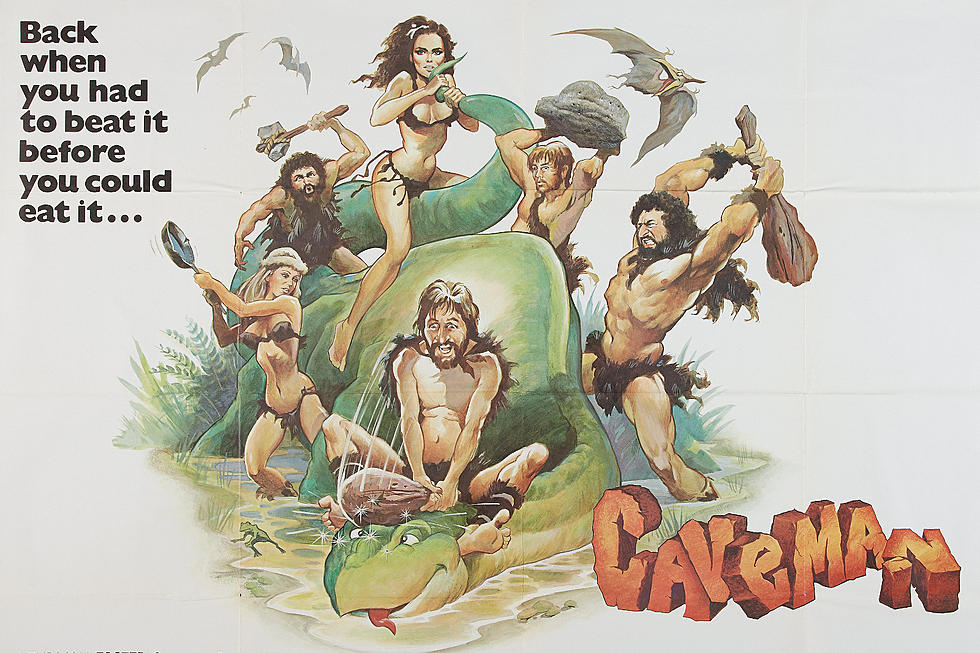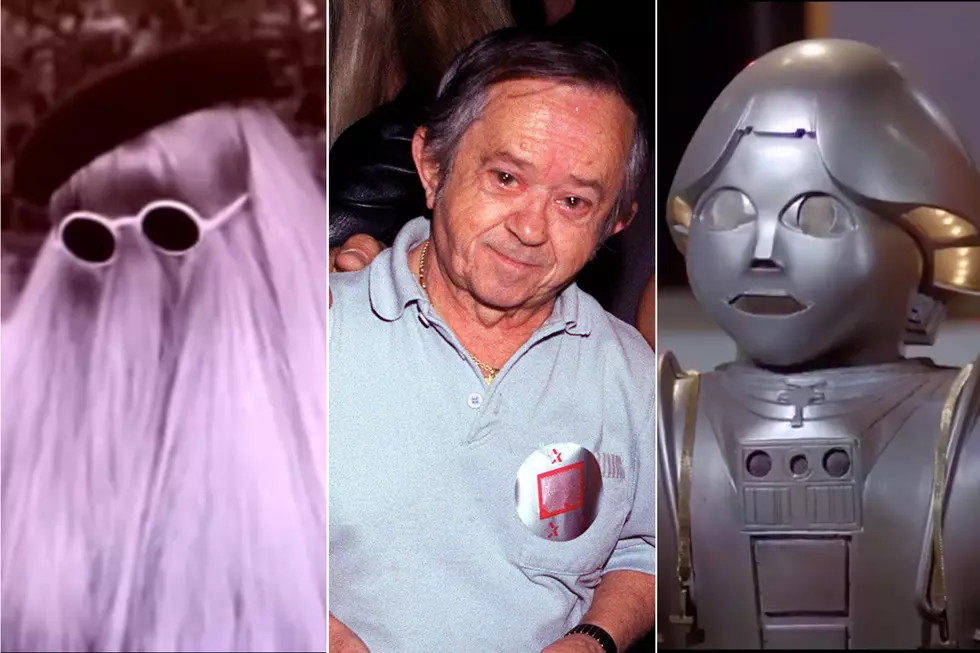
35 Years Ago: Even David Bowie Couldn’t Save ‘Absolute Beginners’
When Julien Temple decided to make a movie that explored the cultural impact of the “teenager” when the concept arrived in the U.K. at the end of the ‘50s, he could have been accused of behaving like a wayward teen himself.
What started out as an arrogant and defiant bid to make the greatest musical of all time wound up as an underdeveloped and overhyped flop – though that doesn’t mean it’s not worth seeing. With David Bowie’s role as advertising exec Vendice Partners and Kinks frontman Ray Davies’ appearance as a put-upon father - as well as the songs both artists brought to the soundtrack - the film appeared to look very good on paper.
On top of that, it was based on a 1959 short novel by Colin MacInnes that was heralded for catching the spirit of rapidly changing London of the previous year; it featured 16-year-old Patsy Kensit in her movie debut; and Temple’s reputation as a punk documentarist meant Absolute Beginners seemed like a legendary moment in the making.
Bowie, for one, was sold on the idea. “[Temple] sent me the script and asked me if I’d write some music for it,” he said in an interview associated with the launch. “I decided when I read the script that I really liked the character of Vendice Partners, the advertising man. So I said, ‘Listen, I’d love to write the music – if I can have the Vendice Partners role.’ He hadn’t really considered that before … he thought it was a good idea.”
Watch David Bowie in 'Absolute Beginners'
But the production didn't proceed as planned. Goldcrest Films, the studio behind the movie, was never certain what it was producing, so it was never sure how to manage the project. Temple was never sure what his budget actually was, saying later that he realized he was already a million pounds over before he even started shooting. In order to keep the money coming in, he resorted to guerrilla PR tactics, making sure the movie was mentioned all over the media – resulting in reviews written before it was made and that it could never live up to.
Temple also noted that the book was thin on plot. It was more accurately a series of vignettes that offered a narrator’s look at a culture-clash moment: the adventurous moral abandon of “Swinging London” set to a backdrop of increasing racial unrest as people from nations won in war by Britain took advantage of their entitlement to move to the center of a dying empire. While additional storylines were added to the movie, it appears they were added in an ad-hoc manner - in that they didn’t actually help things move along like they should have.
It went like this: Aspiring photographer Colin (Eddie O'Connell) decides to make his last year as a teenager something to remember. Angry at his mom, who prefers the company of her many male lodgers to that of his dad (Davies), and dumped by his girlfriend Crepe Suzette (Kensit), who’s decided to enter a loveless marriage for profit, he explores the burgeoning London scene with all its bright and dark corners. Caught amid one of the first-ever British race riots, he has to decide whether to chase his own career ambitions or abandon the sleazy world (best represented by Bowie’s Partners) that he finds so fascinating.
“It was like a theme park, the sets were so real,” Kensit told The Guardian in 2015. "American Vogue were there shooting Polaroids, and someone from The Face would be wandering around. A lot of the extras were cast from the Wag Club in Soho. … I was so square: People would be smoking a joint, and I’d be horrified.” She also recalled the only time Bowie interacted with her, other than greetings in passing. “One day he came into the makeup room, picked up a brush and started doing my hair – it was the most erotic experience I’d ever had.”
Watch Patsy Kensit in 'Absolute Beginners'
Horrified at what Temple presented to them, Goldcrest fired him and brought in three different editors to cut the movie. They hacked it apart over four months and seemed to make things worse. In the end, Temple was given two weeks to rescue what he could. Knowing there was now no chance of audiences seeing what he’d envisioned, he spent most of the short time reassembling the impressive opening scene, where one camera sweeps through the backstreets of “Swinging London.”
Despite the positive reviews for Bowie’s title song, and appreciation for Davies’ writing and performance of “Quiet Life,” there wasn’t enough substance to save a movie laden with a busted budget and bloated bluster. Absolute Beginners tanked on its opening day of April 18, 1986, taking a little more than $2 million at the box office against a budget of more than $10 million. The movie is said to have taken Goldcrest with it: The company collapsed with combined debts of more than $50 million, with two other failed productions contributing to the disaster. Blamed for almost single-handedly destroying the British movie industry, Temple was eventually forced to abandon his homeland and find work in the U.S.
“I don't think I've ever seen worse acting in a major British film,” Goldcrest boss Jake Eberts wrote in his 1990 memoir My Indecision Is Final. Claiming that Bowie’s title track was the “only good feature of the whole film,” he said, "There was nothing in the picture to which you could attach hope. … The music, the performances, the characters and the dance numbers added up to one of the least attractive films of the decade.”
Watch Ray Davies in 'Absolute Beginners'
“Nothing could have lived up to the hype, but what Julien put together is unique,” Kensit said. “If you look at Fellini’s movies, or Nic Roeg’s, they’re classics, but you’re not going to watch them on Easter Sunday. The reaction was typically British: ‘They’re all brats – this looks like far too much fun.’”
“The fact that I couldn’t work was quite scary at the time for me, because that’s all I was living for, really,” Temple told SupaJam in 2016. “But I probably would have been dead in Hollywood if it had been a big success, floating in some Jacuzzi. … I am still hungry to work, which I probably wouldn’t have been so much if that had been huge and I’d done a lot of big movies.” Describing the experience as “a half-nightmare, half-dream memory,” he argued that while the movie was set in the late ‘50s, it also captured the mid ’80s since so many people who worked on it, including the extras, were members of the later era’s London scene.
“Visually, I think it’s very powerful,” he noted. "It has a whole kind of social history in each frame. I think it was a very ambitious thing for a bunch of young kids to try and do. We got a big spanking in the end - partly deserved but not probably wholly deserved.”
He also pointed out that Absolute Beginners did well elsewhere in the world: “In Europe, it went down much better. In the States, they liked it. In fact, when I got to L.A., I had this weird, squeaky voice on the phone saying, ‘Hey, it’s Michael here.’ I was, like, ‘Hello. Michael who?’ And he said, ‘Michael Jackson. Janet and I would like to invite you over to the family home. We dance to Absolute Beginners. We would like to perform it for you.’ They had their own print, and they danced it for me beneath the cinema screen in their home, which was quite surreal.”
Kensit recalled: “Later, I did a movie called Grace of My Heart that Martin Scorsese was producing. He was on the set every day and bent my ear constantly about Absolute Beginners, about how it was one of his Top 10 movies, how it was like [Francis Ford] Coppola’s One From the Heart but better. ‘Was the opening sequence really just one Steadicam shot?’ he asked, because he’d tried to do one in Goodfellas.”
Bowie remained pleased with his own contribution, complete with another hit single, happily saying he didn’t like the character of Partners. “It’s the same kind of pompous kind of character that you find in advertising,” he explained, referencing an early post-school job as an ads artist that lasted six months. “I absolutely loathed it, most of the people and especially the execs.” That’s where he came up with the concept of having Partners slip “in and out of an American accent, not very successfully.”
“I don’t relate to him particularly," he said. "But I enjoyed playing him, because he’s such a bastard.”
Watch David Bowie's ‘Absolute Beginners’ Theme Song
Top 20 '80s Romantic Comedy Movies
More From 99.1 The Whale










